Mud play! Let the mess begin! Real dirt, mud, and a lot of good, wholesome mess make for the best play and learning experiences! These mud play activities explore mud inside and out with science, sensory, math, and building play. Sensory play activities are so important for young kids.
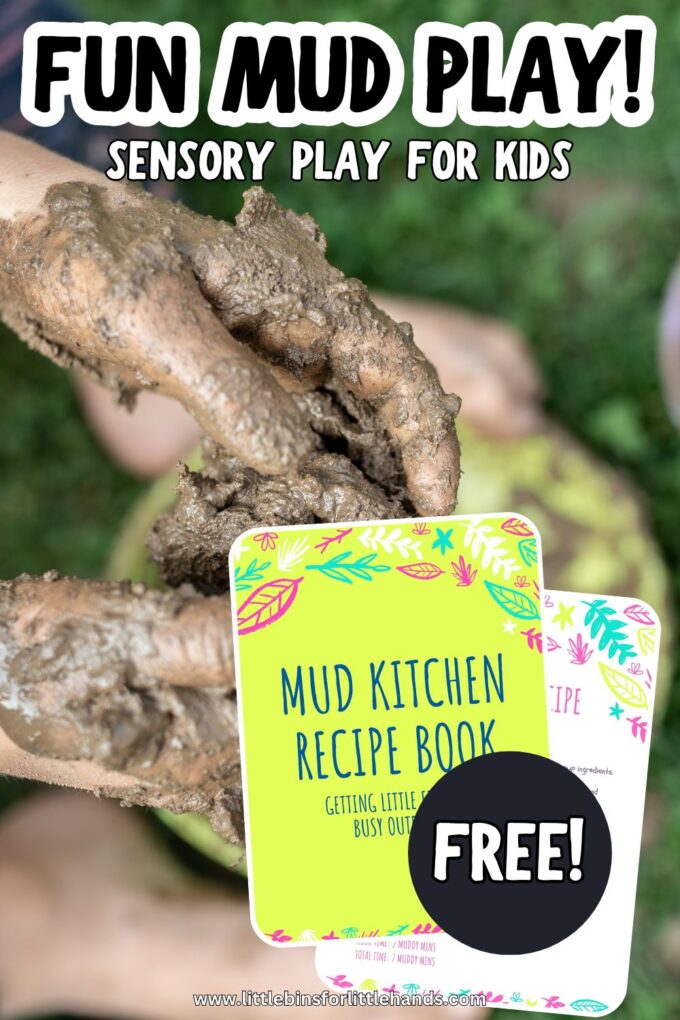
Mud Play
Why not let kids feel what they are learning when it comes to mud play? Experiment with new ideas, create new play schemes, solve problems, and enjoy the process. Give your child the opportunity to get dirty. It’s good for them!
Sometimes, we forget the importance of being dirty, getting dirty, making messes, and living or playing simply. Let’s all commit to turning off the electronics and scooping some mud this spring and summer. Everyone should get their hands on it.
Free Mud Kitchen Recipes Pack
You’ll want our free mud play pack if your mud play involves a mud kitchen!
6 Mud Activities Plus One Fun Clean-Up Activity!
Here are five ways for kids to engage in mud play:
Take a look: More Messy Play Recipes here.
Mud Kitchen Creations: Set up a mud kitchen outdoors with various kitchen utensils, pots, pans, and containers. Encourage children to pretend they are chefs and use the mud to cook up imaginative dishes like mud pies, mud cakes, or mud soup. They can mix different ingredients, create recipes, and serve their culinary creations to their friends or stuffed animals.
Mud Art and Sculptures: Provide children with tools like spatulas, brushes, and sticks, along with a large surface such as a piece of cardboard or a wooden board. Let them use the mud as a medium to create artworks and sculptures. They can sculpt animals, shapes, or abstract designs, experimenting with textures and forms.
Mud Construction Zone: Set up an area where children can build structures and constructions using mud and natural materials like sticks, stones, and leaves. Encourage them to build mud castles, forts, or villages, fostering teamwork and collaboration as they work together to design and construct their creations.
Mud Sensory Exploration: Fill bins or trays with mud and provide children with various tools and objects for sensory exploration. They can use their hands, feet, or tools to manipulate and explore the mud’s texture, temperature, and consistency. Add natural materials like pinecones, shells, or pebbles to enhance the sensory experience.
Mud Puddle Splashing: On a rainy day or after a recent downpour, take children outside to jump and splash in muddy puddles. Encourage them to stomp, splash, and play freely in the mud, experiencing the joy and exhilaration of messy play. Provide rain boots and waterproof clothing to keep them comfortable and dry.
Magic Mud
Make your own cornstarch mud for kids to use for hands-on sensory play. Check out our simple magic mud recipe!
Clean Mud
Clean mud play? Is there such a thing? If you make clean mud, it is! Try this fantastic sensory recipe for a sort of messy play experience.
Soap Foam
It’s time for the suds! I’m pretty sure everything will be dirty by the time you’re finished with your mud play activities. Why not set up a soapy sensory wash outdoors to get the buckets, scoops, and other materials clean and ready for the next mud day activities?
Mud Play Benefits
Mud play offers numerous benefits for young kids. Here are some of the benefits:
Sensory Stimulation: Mud play engages multiple senses, including touch, sight, and smell, which helps in sensory integration and development.
Creativity and Imagination: Playing with mud encourages creativity and imaginative play. Children can mold, shape, and create various structures using their imagination, fostering cognitive development.
Fine Motor Skills: Manipulating mud helps children develop fine motor skills as they pinch, squeeze, and mold the mud into different shapes and textures. This enhances hand-eye coordination and dexterity.
Social Skills: Mud play often involves collaboration and cooperation as children build structures or complete tasks. This fosters social skills such as communication, sharing, and teamwork.
Stress Reduction and Relaxation: Playing with mud can be a calming and therapeutic activity for children, helping them reduce stress and anxiety. The tactile experience of mud play can be soothing and relaxing.
Connection with Nature: Mud play allows children to connect with nature and explore the natural world around them. It encourages a sense of wonder and curiosity about the environment.
Risk-Taking and Resilience: Engaging in messy play like mud play allows children to take risks in a safe environment. They learn to overcome challenges and setbacks, building resilience and confidence.
MORE FUN PLAY IDEAS
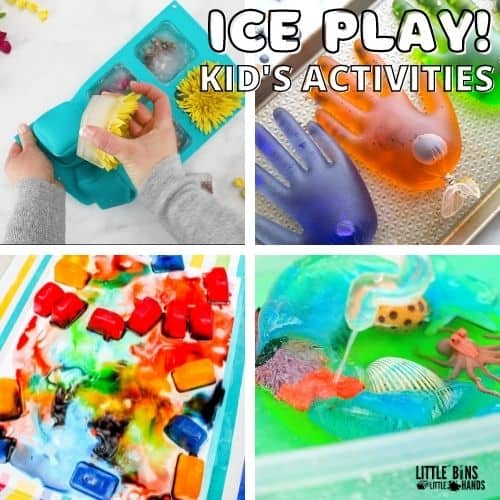
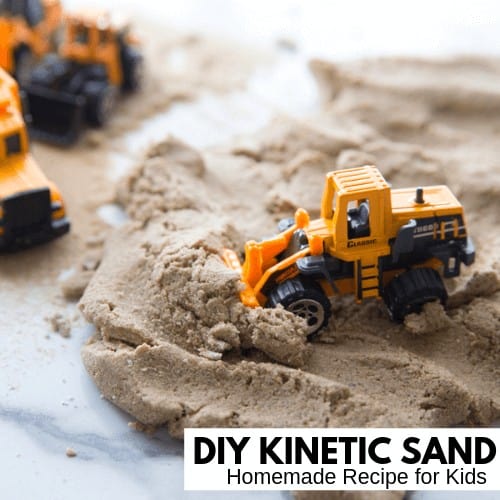
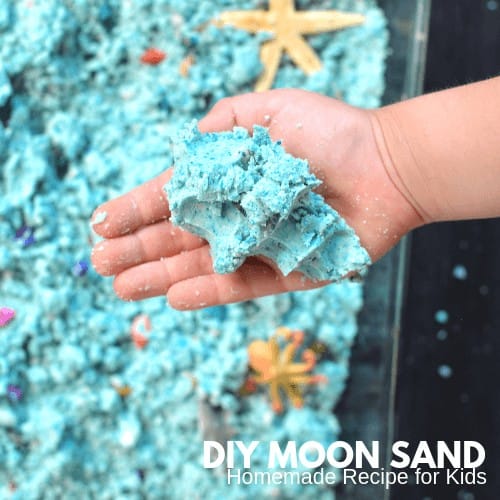
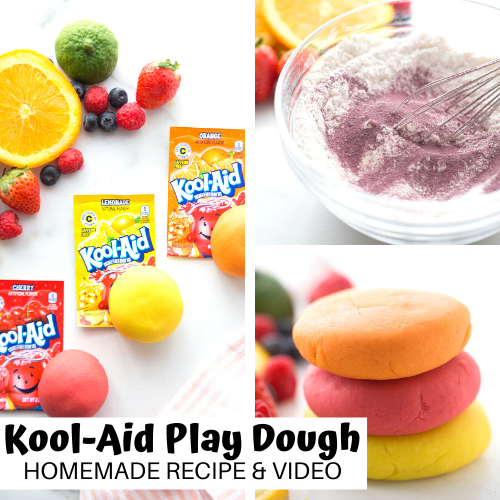
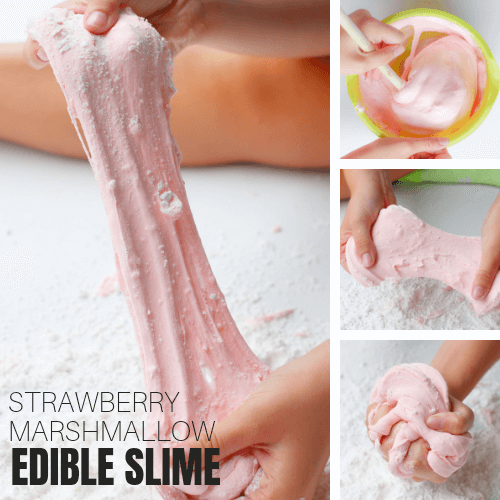
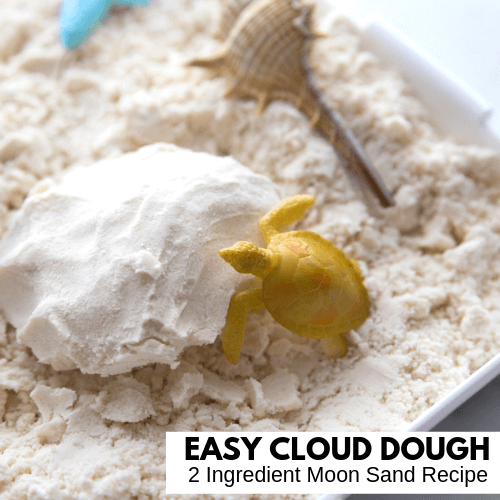
Enjoy mud play activities this Spring and Summer!
Click on the image below or on the link for fun summer science experiments for younger and older kids.
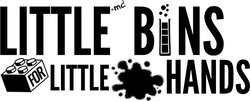

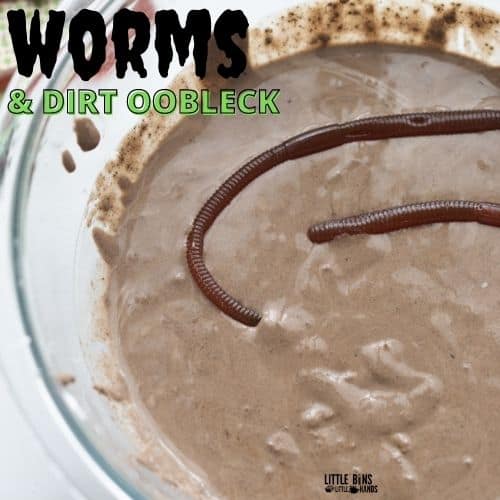
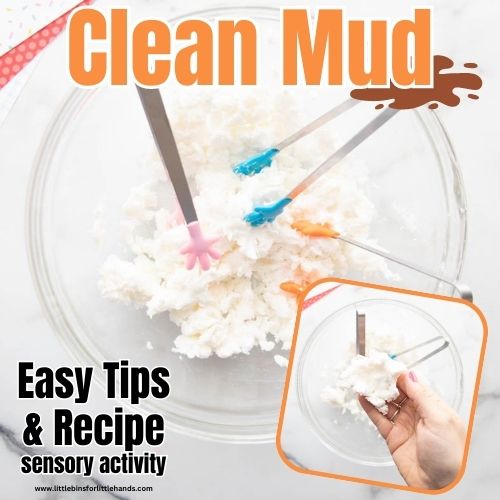
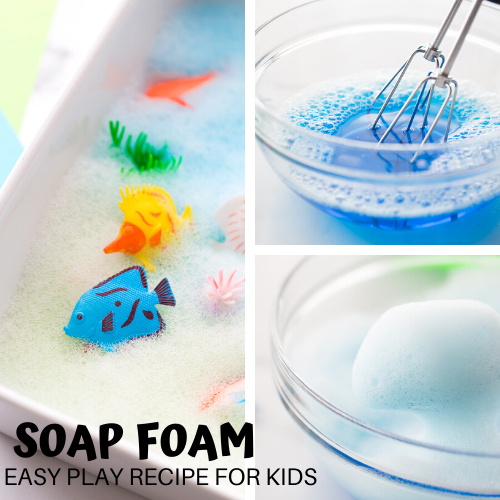
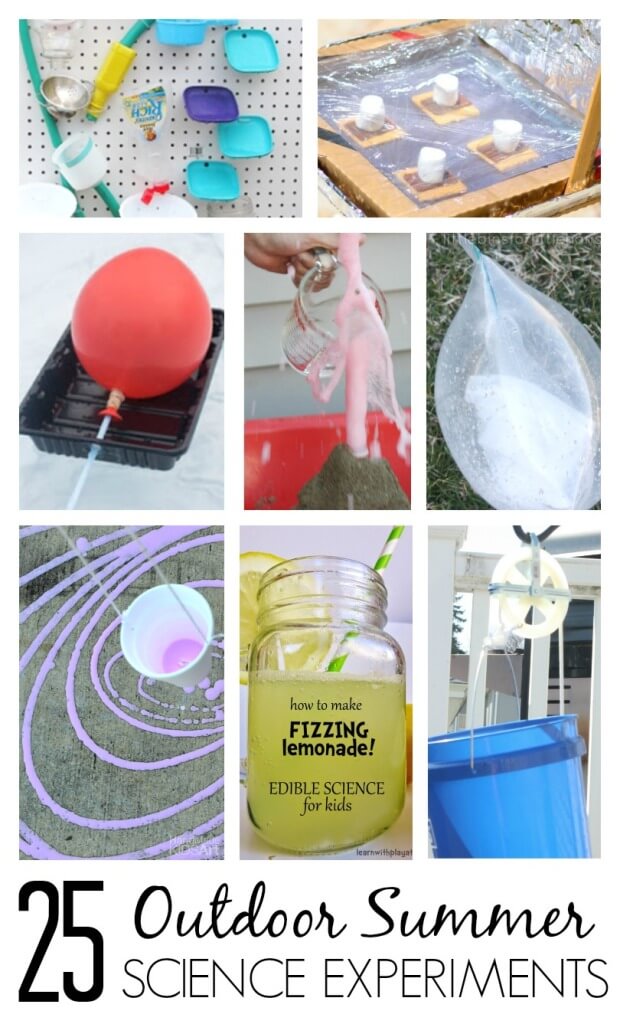
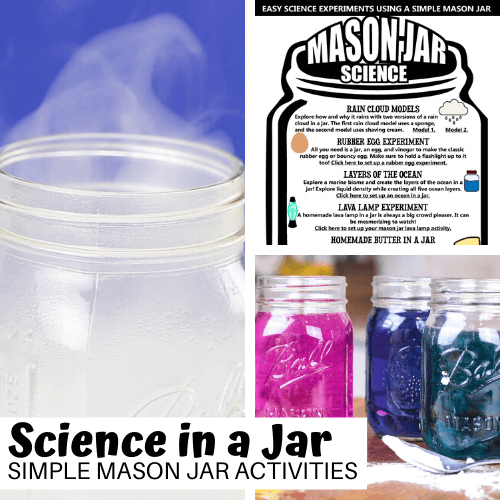
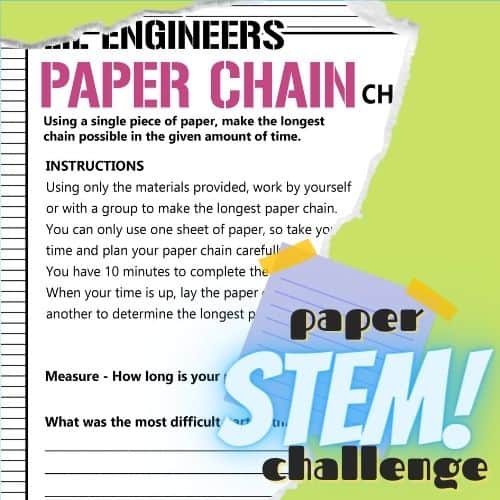
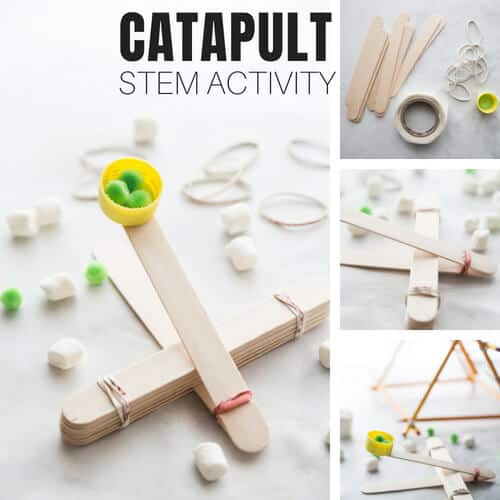
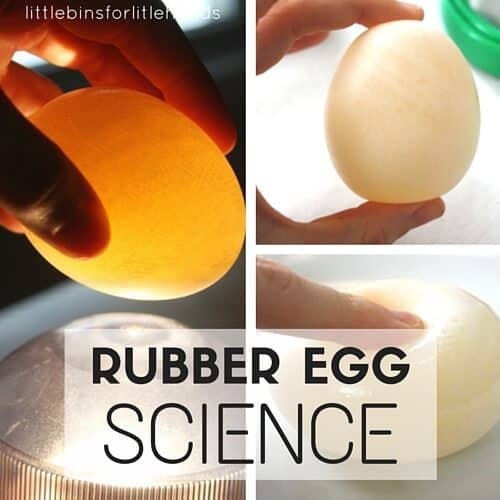
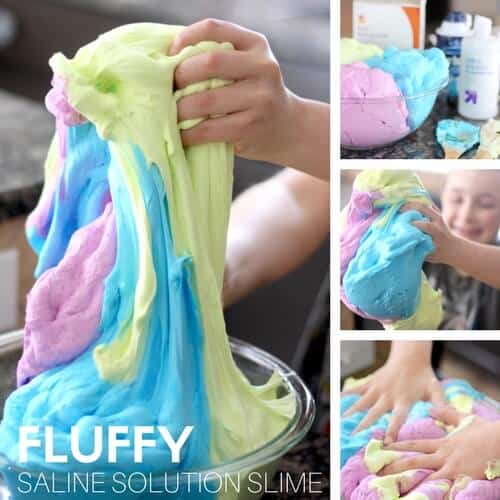

Awesome mud kitchen idea for kids outdoor play. They can play and make a huge fun. At the same times, they can pretend that they are cooking all kind of dishes. This type of activities will help your kids a lot for improving their creativity and imagery thoughts when they just spend times in outside area. Thanks for sharing this idea. I just back in my childhood.
It is fun to see how parents today are open about letting kids play with mud and explore unique activities close to nature. This was not the case a few decades ago. People were pretty scared to let their children play in the mud thinking they would get ill. Thanks for the share.
I made this for my almost two yr. old little girl and I must say she really enjoyed it! I had to keep reminding her not to put in mouth lol. As I played along with her I kept thinking it was snow instead of clean mud 😉
Thanks for sharing!
Hahaha…. that’s a pretty idea. In childhood, I used to play & eat the mud. LOL!